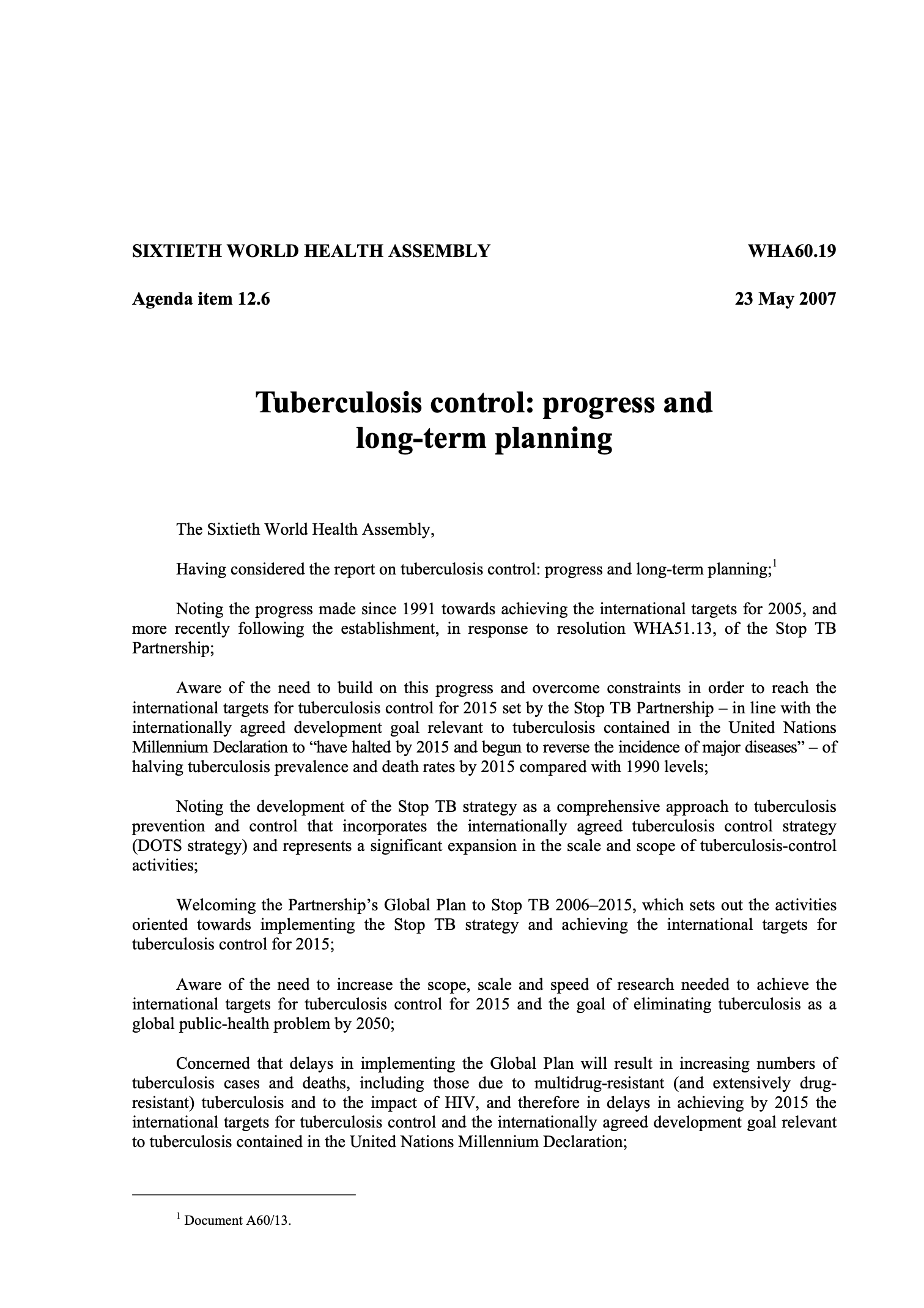2007 WHA Resolution on tuberculosis control: progress and long-term planning
Analysis of precedential value
The World Health Assembly (WHA) is the decision-making body of the World Health Organization. It includes delegations from every UN member state, which gather annually to address questions about WHO’s governance, budget, and progress. Although WHA resolutions are centred on health, they engage various related topics ranging from military aggression to migrant rights.
Used as precedent
access to health products
“Urges all member states to develop and implement long-term plans for tuberculosis prevention and control in line with the Global Plan to Stop TB 2006–2015, in the context of overall health development plans, in collaboration with other programmes (including those on HIV/AIDS, child health and strengthening of health systems), and through national Stop TB partnerships where appropriate, with the aim of controlling the emergence and transmission of multi-drug-resistant tuberculosis, including extensively drug-resistant tuberculosis, by ensuring the high-quality implementation of the DOTS strategy and by prompt implementation of infection-control precautions.” (paragraph 1(1)(d))
“Urges all member states to develop and implement long-term plans for tuberculosis prevention and control in line with the Global Plan to Stop TB 2006–2015, in the context of overall health development plans, in collaboration with other programmes (including those on HIV/AIDS, child health and strengthening of health systems), and through national Stop TB partnerships where appropriate, with the aim of: if affected, immediately addressing extensively drug-resistant tuberculosis and HIV-related tuberculosis as part of the overall Stop TB strategy, as the highest health priorities.” (paragraph 1(1)(e))
“Requests the director-general to strengthen urgently WHO’s support to countries affected by multidrug-resistant tuberculosis and especially extensively drug-resistant tuberculosis, and to countries highly affected by HIV-related tuberculosis.” (paragraph 2(3))
“Requests the director-general to support Member States in developing laboratory capacity to provide for rapid drug-susceptibility testing of isolates obtained from all persons with culture-positive tuberculosis, to develop consensus guidelines for rapid drug-susceptibility test methods and appropriate measures for laboratory strengthening, and to mobilize funding.” (paragraph 2(3))
key and vulnerable populations
“Requests the director-general to strengthen mechanisms to review and monitor estimates of impact of control activities on the tuberculosis burden, including incidence, prevalence and mortality with specific attention to vulnerable groups highly at risk, such as poor people, migrants and ethnic minorities.” (paragraph 2(3))
